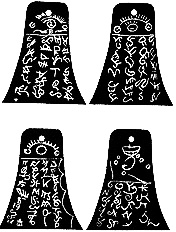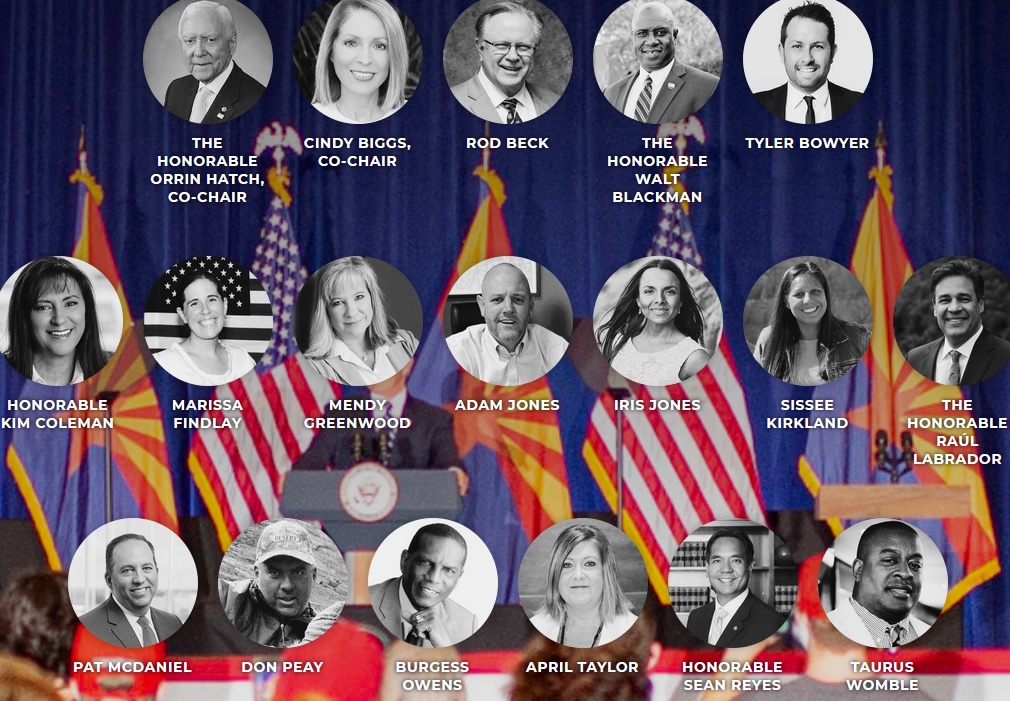Author: Jonathan Green
-
Ein Ruf aus der Wüste 4.10: Orson Hyde on continuing revelation
The teachings are familiar, but the images are surprising.
-
Ein Ruf aus der Wüste 4.9: Orson Hyde on blessing and baptizing children
This short sections feels quite familiar.
-
Point: It’s just art
Hezekiah didn’t consult with artists or historians before destroying the bronze snake Moses had made. He didn’t even try to preserve it somewhere else for its cultural value.
-
Ein Ruf aus der Wüste 4.8: Orson Hyde on confession and disfellowship
On the confession of sin and the treatment of members acting contrary to law
-
Ein Ruf aus der Wüste 4.7: Orson Hyde on the sacrament
For Hyde, the sacrament seems to be not quite as strictly symbolical as it is for us, and more directly tied to guilt and confession. Also, will Sunday always be the Sabbath?
-
Ein Ruf aus der Wüste 4.6: Orson Hyde on confirmation
What is a priesthood ordinance’s method of action? What Hyde describes in this short article seems to be both less direct, and to emphasize the mediation of the priesthood and the priest conducting an ordinance, more than we typically would today. The gift of the Holy Ghost also seems conspicuously absent.
-
Ein Ruf aus der Wüste 4.4: Orson Hyde on repentance
Most of this article is not actually about repentance.
-
Ein Ruf aus der Wüste 4.3: Orson Hyde on faith
Orson Hyde’s lecture on faith seems a lot like the Lectures on Faith.
-
Ein Ruf aus der Wüste 4.2: Orson Hyde on new scripture
Everything makes sense until the last sentence.
-
Ein Ruf aus der Wüste 4.1: Orson Hyde on the Godhead
Orson Hyde’s explication of doctrine, like the Articles of Faith, begins with the nature of God, although Hyde’s treatment is about 30 times as long.
-
Ein Ruf aus der Wüste 3: Orson Hyde on priesthood
The subject of the priesthood office has by itself already caused more contention, bitterness and jealousy between the Catholic and the Protestant church than all remaining matters of dispute combined.
-
Ein Ruf aus der Wüste: translating the name of the church in 1842
The translator thought about it and…just gave up.
-
Ein Ruf aus der Wüste: Foreword
The fierce desire harbored by the author of this booklet to fulfill an obligation that, he feels, a more than human power has imposed on him, as well as the heartfelt diligence with which he hopes to gladden his fellow men through the proclamation of those truths that fill his own heart with inexpressible joy…
-
Ein Ruf aus der Wüste: title page
The first non-English Latter-day Saint work, Orson Hyde’s Ein Ruf aus der Wüste, was published in 1842 in Frankfurt. The section recounting the life of Joseph Smith and the translation of the Book of Mormon has been translated multiple times and is available at the Joseph Smith Papers Project, in Dean Jessee’s 1989 The Papers…
-
A Christmas wish
If your parents or grandparents die of Covid-19, please make sure the disease appears as the cause of death in their obituaries.
-
Radical Orthodoxy
I swore off writing manifestos 20 years ago as bad business with no profit in it. Why would I sign this one?
-
Use of the gold plates in Book of Mormon translation accounts
It’s become something of a communis opinio doctorum that Joseph Smith didn’t make use of the gold plates while translating the Book of Mormon.
-

Concealment and divine prohibition in Book of Mormon translation accounts
A common motif in accounts of the translation of the Book of Mormon is how others beside Joseph Smith were forbidden, prevented, or to the contrary permitted to view the gold plates, the interpreters or the translation process.
-

How the Book of Mormon was translated: a proposal
I propose that there is a continuity of method connecting Joseph Smith’s translations of ancient texts, from the Book of Mormon to his encounter with the Kinderhook plates, and that this method was both expansive and linguistic.
-

Learning from Kinderhook
Don Bradley and Mark Ashurst-McGee have published the definitive account of Joseph Smith’s 1843 encounter with the Kinderhook plates.
-
Machine Translation
Two attitudes about translation are on my mind. One is about Joseph Smith: “Seeing words appear in a seer stone is magic, not translation. Translation is when you have the equivalent text in a foreign language, like Google Translate.” The other attitude is not uncommon among translators and translation clients: “Google Translate isn’t translation. It’s…
-
Interpreters, visions and seer stones
The Interpreter has recently published two reviews of William L. Davis’ Visions in a Seer Stone. The two reviews, by Brant Gardner and Brian Hales, exemplify what I think are positive trends in Latter-day Saint contributions to Mormon Studies.
-
Perils on every side
Our unhappy political moment has unfortunately corrected a longstanding asymmetry in ideologically-driven exit options.
-

They’re not wrong
They’re not wrong. Not about everything. I disagree with their choice of candidate. What they want would have—has had—disastrous results, but that doesn’t mean they’re entirely wrong.
-
What I miss about home church—and why I need to go back to sacrament meeting
I’ve heard multiple people say how much they’ve enjoyed the last five months of home church. Studying the scriptures however they want, and worshiping each Sunday as a family? More, please. Now that my ward has resumed meeting, there’s a lot to miss about home church.
-
“By his own admission”: a one-footnote review
John Hammond’s Quest for the New Jerusalem: A Mormon Generation Sagastates that Sidney Rigdon, “by his own admission, ‘made up’ religious experiences in his youth,” which seems like something worth looking into.
-
Notes on Book of Mormon Philology. Vb4. The utility of philology: Jacob and Sherem
Imagining the Book of Mormon as a complex work reflecting numerous steps of compilation and abridgment helps explain some curious features of the encounter with Sherem in Jacob 7.
-
Notes on Book of Mormon Philology. Vb2-3. The utility of philology: Nephite origins
Thinking of the Book of Mormon as the result of a series of textual accretions and combinations might help make sense of how curiously overdetermined the account of Nephite origins is.
-
Notes on Book of Mormon Philology. V.The permissibility and utility of philology for studying the Book of Mormon
Is philological deliberation useful for studying the Book of Mormon? Is it even permitted?
